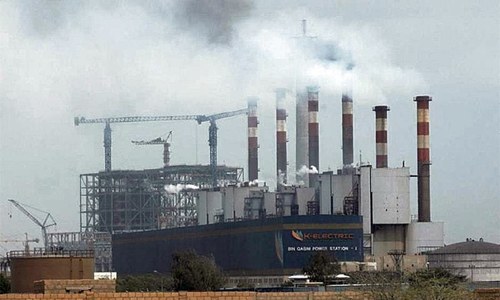ISLAMABAD: Prime Minister Imran Khan has reconstituted the Executive Committee of National Council (ECNEC) and Economic Coordination Committee (ECC) of the Cabinet – two key panels for economic and development policy making.
According to a notification issued by the cabinet division, Finance Minister Asad Umar will be the chairman of the 8-member Ecnec. Other panel members include Minister for Planning Makhdoom Khusro Bakhtiar, Adviser to PM on Commerce and Industry Abdul Razak Dawood, Adviser to PM on Institutional Reforms and Austerity Dr Ishrat Hussain.
In addition to these members, Ecnec panel would also include four provincial members; Finance Minister Punjab Makhdum Hashim Jawan Bakht, Nisar Ahmed Khuhro from Sindh, KP Finance Minister Taimur Saleem Jhagra and Balochistan Minister for Communication and Works Nawabzada Tariq Khan Magsi.
The secretaries of economic affairs, finance and planning and development would be invited to all meetings while representatives of federal and provincial governments as well as of the Government of AJ&K, Gilgit-Baltistan and FATA shall be invited to the meetings on need basis.
Informed sources said the present government had not reconstituted the Ecnec since it came to power two month ago, resulting in serious issues including those relating to foreign inflows to development projects. These sources further said that since there was no institutional arrangement to clear development projects for six months, financial flows from development partners have almost dried up.
The international lenders do not take up development projects or their financing for approval or disbursement before securing approval from the Central Development Working Party (CDWP) or Ecnec.
Under financial rules, CDWP can approve up to Rs3bn worth of development schemes and refer projects of higher costs to Ecnec for approval. On October 17, the CDWP referred projects worth Rs140bn to Ecnec for formal approval which could not be cleared in the absence of panel.
On the other hand, the ECC was reconstituted for second time during the last two months. Earlier, the prime minister had appointed a 13-member ECC in August which was subsequently expanded with the addition of two members. Fresh inductions to ECC include Federal Minister for Maritime Affairs Ali Zaidi and Minister of State for Communications Murad Saeed.
Earlier, PM had turned down a summary of the cabinet division to lead the ECC and instead appointed the finance minister as chairman.
Other members of the ECC include ministers for law and justice, petroleum, power, planning & development, railways, national food security, privatisation, statistics, communication and advisers on commerce and national reforms.
There are no set standards and rules directing who should head the ECC or other sub-committees of the cabinet. Different prime ministers have made varying decisions in the past. It is the prime minister’s prerogative under the Rules of Business, 1973, to appoint as many committees of the cabinet as he or she desired and to assign any subcommittee of the cabinet to anyone of their cabinet colleagues.
Former prime minister Shahid Khaqan Abbasi had decided to head the ECC himself after replacing Ishaq Dar. Mr Abbasi’s decision brought direct control to the prime minister’s office — over federal ministries and divisions — that it had enjoyed when Shaukat Aziz was prime minister under retired General Pervez Musharraf’s dictatorship.
Former prime minister Yousuf Raza Gillani initially continued with the arrangement when he inherited the government. The authority was subsequently transferred to finance ministry when Shaukat Tarin took the reins from Syed Naveed Qamar.
Former prime minister Nawaz Sharif had delegated all economic and financial powers to Ishaq Dar who reportedly headed, at one time, more than four dozen committees, including those on legal, constitutional and political affairs.
Published in Dawn, October 27th, 2018
Download the new Dawn mobile app here:














































